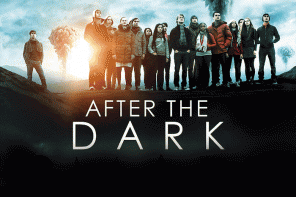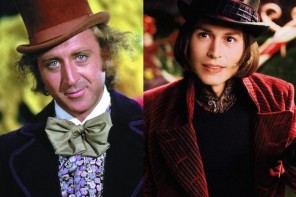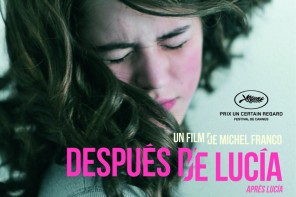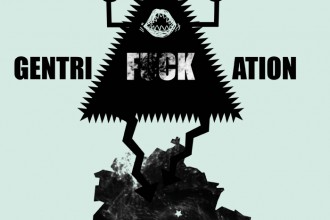Yol (1982) by Yilmaz Guney and Serif Goren
Yol is a film written by Yilmaz Guney and directed by Serif Goren, two Turkish directors and screenwriters. However, I specified that Guney was the writer because he is the true instigator of this movie, and as for many of his cursed movies (many have been burned, others were refused by censorship), he was actually in jail when it was shot. Guney spent 15 years in several Turkish prisons, always in and out, escaping one day, being caught the other. The first time, he was 17 and he had written a collection of short stories. Obviously Guney’s anti-imperialist and leftist ideas were not well perceived by government censorship. Why all these details ? There is a reason. Guney knows how the inside of a jail looks like, and he also knows what it feels like to be trapped and secluded for his opinions. As such, my personal feeling is that, among all the films made by Guney, there is one theme that always comes back: men live in a prison-like world.
September the 12th, 1980, my father often says that’s when the “witch hunt” began in Turkey. A military putsch overthrew the legitimate government, settling an extreme right wing military regime under the command of general Kenan Evren, one of the biggest pieces of shit modern Turkey has known. Communists of all kinds were pursued, maoists, stalinists, leninists, marxists, and also Kurd activists. Their homes turned upside down, their families torn apart, and the male or female activists caught, sent to jail and tortured. In this context of violence and defiance, Guney was already in jail, which was apparently a great place for him to create since he wrote so many scripts while being there. That’s the situation he wanted to depict. To show the world what exactly was going on in Turkey, despite the fact that the American government did not move an inch when there was the coup. I would say it made a lot of sense: Turkey was a military base for them, they had stocked a number of nuclear heads in the Eastern areas, pointing directly to the USSR. Moreover, Kenan Evren was actually arresting and slaughtering communists, exactly what the Americans needed.
Yol begins in a Turkish jail, prison guards are reading aloud names of inmates. Some have received letters. Some didn’t. Five characters begin to gain momentum and the audience understands that they are meant to be the main characters, all of them Kurds, all of them “criminals”. A shot displays one of Guney’s favorite image: free flying seagulls. He was obsessed with them since he could see them flying on the sea from his dark cell, behind bars. They act as a driving force here since the five characters will get a “permission” to get out of jail for a week and see their families. The title “Yol” means “the road” by the way, underscoring the constant movements of the characters in the movie.
Two tremenduous enemies will stand in their way: the regime of course, represented by the many soldiers enrolled in the junta, and also the feudal culture, or the norm in a way. The first character to be caught is riding in a bus which is stopped by the junta. He lost his permit, so they arrest him and send him back in a cell. His trip lasted one day. The others will confront more perverse logics, something that french philosopher Michel Foucault would have called the “discipline”. In other words, and to put it more simply, the norm that pervades society and unifies all behaviors, as well as body language. The human body, in that context, is chained, regulated, controlled by normative phenomena. For instance, one of the characters go back to Kurdistan to meet his beloved and promised one. However, even though he got out of jail and wants nothing more than simple intimacy, a group of veiled women will pursue them in the streets, following their every move and driving the man crazy. He can’t actually touch her. Much in the same manner, one of the others arrive in his home town, Diyarbakir, a city in the Middle-eastern area of Turkey. His crime: he took part in a robbery with his brother-in-law, but when push came to shove he obeyed his instincts and escaped, abandoning his brother-in-law who is then shot by the police. Hated and chased out by his wife’s family, he manages to convince her to follow him. They are then travelling in a train, they attempt to make love in the toilets, they can’t hold back anymore. A passenger spots and denounces them. They are then arrested. The husband states: “you think we are monsters, but you just cannot understand us”.
The last story-line, the one that goes further East, beyond the winds and the snow, revolves around Seyit Ali. His wife became a prostitute during his absence. The reason: she needed to provide for her son while her husband was locked up in a region defined by poverty, feodalism and death. However, her own family demands justice. She needs to be killed, abandoned in a stormy valley, alone and starving. And the husband is the true righteous one to bring justice, it is in a way his duty in this feudal region. He goes on to see her chained in a cave like an animal and then takes her away, dragging her with a rope around her waist. The son of course has to witness this punishment. Realizing his own misery and moral decay, Seyit Ali stops and takes her to a doctor, only to see her die. The last scene shows a destroyed and depressive Seyit Ali who erupts in tears in a packed train, ignoring the rules of so called “manhood”.
Norms, feudal society, the treatment of women in Turkey, the junta, the situation of the Kurds; all these pieces put together form what still remains today the most important political Turkish movie. It was censored in Turkey for 15 years, which did not stop Guney from escaping his prison to gain French territory in order to present the film at the 1982 Cannes film festival. He actually died of cancer in Paris, two years later. His last movie was entitled “The Wall”, only confirming that his greatest obsession remained freedom as the ultimate value for a revolutionary. I’ll leave the last words to him, as I should: “In Yol, I wanted to show how Turkey had become a half-open immense prison. All of its citizens are convicts”.







